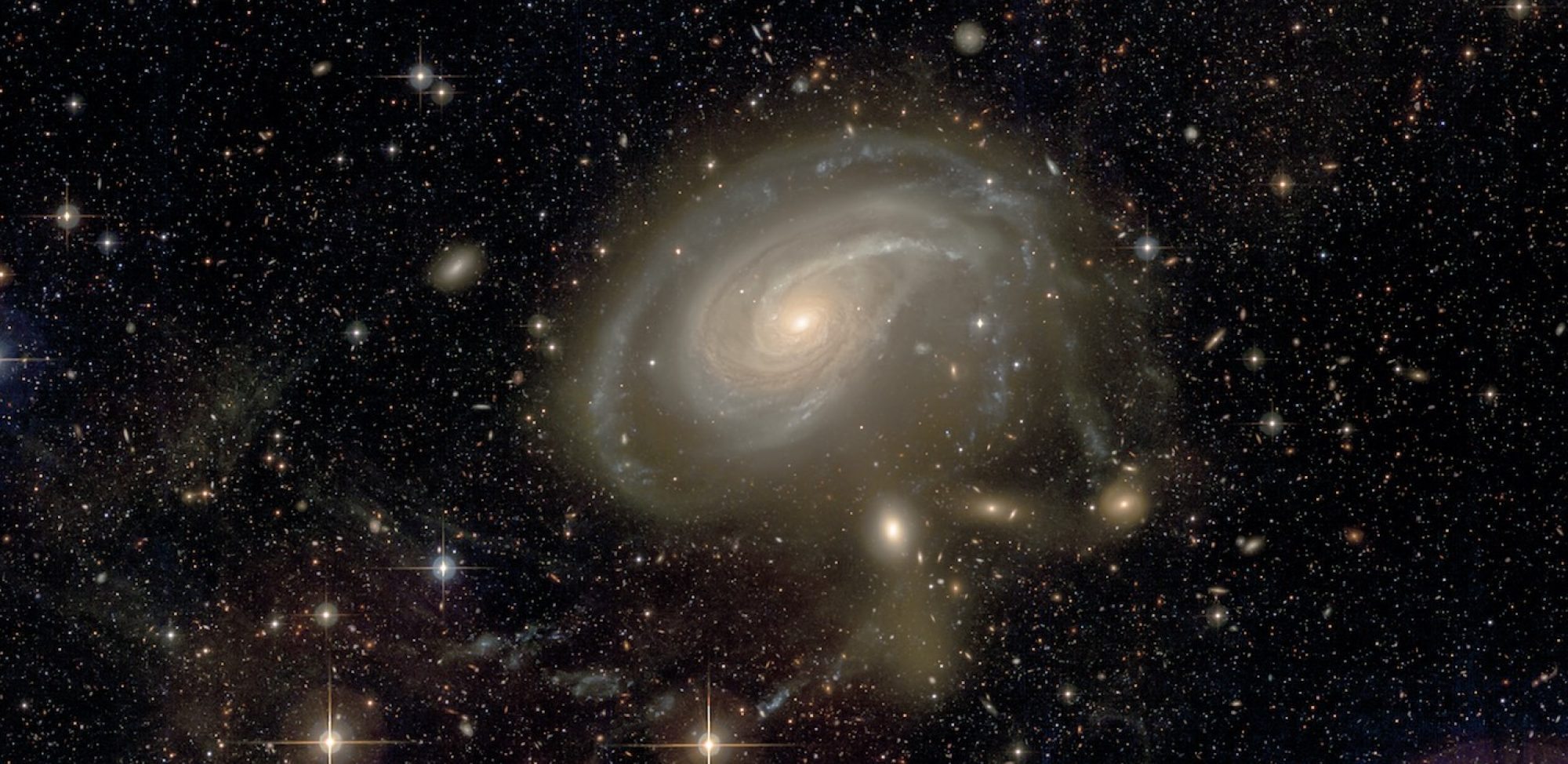
Scaling relations for MATLAS dwarfs and luminous subhaloes in the TNG50 simulation (Kanehisa+24)
Context. Dwarf galaxy abundances can serve as discernment tests for models of structure formation. Previous small-scale tensions between observations and dark matter-only cosmological simulations may have been resolved with the inclusion of baryonic processes; however, these successes have been largely concentrated on the Local Group dwarfs the feedback models were initially calibrated on.
Aims: We investigate whether the ΛCDM model can reliably reproduce dwarf abundances in the MATLAS low-to-moderate density fields that are centred upon early-type host galaxies beyond the Local Volume.
Methods: We carried out mock observations of MATLAS-like fields with the high-resolution hydrodynamic simulation IllustrisTNG-50. We used matching selection criteria and compared the properties of dwarfs contained within them with their MATLAS analogues.
Results: Although simulated MATLAS-like dwarfs demonstrate photometric properties that are consistent with the observed galaxy population and follow the same scaling relations, TNG50 underestimates the number of dwarf galaxies in isolated MATLAS fields at the 6σ level. This significance maintained within crowded fields containing more than a single bright host. Our 55 − 62% estimate of the fraction of background galaxies is in agreement with estimates by MATLAS, but is wholly insufficient to alleviate this discrepancy in dwarf abundances. Any incompleteness in the observed fields further exacerbates this tension.
Conclusions: We identified a “too-many-satellites” problem in ΛCDM, emphasising the need for the continued testing and refining of current models of galaxy formation in environments beyond the Local Group.
Kanehisa, K et al., 2024, A&A 686, 280

